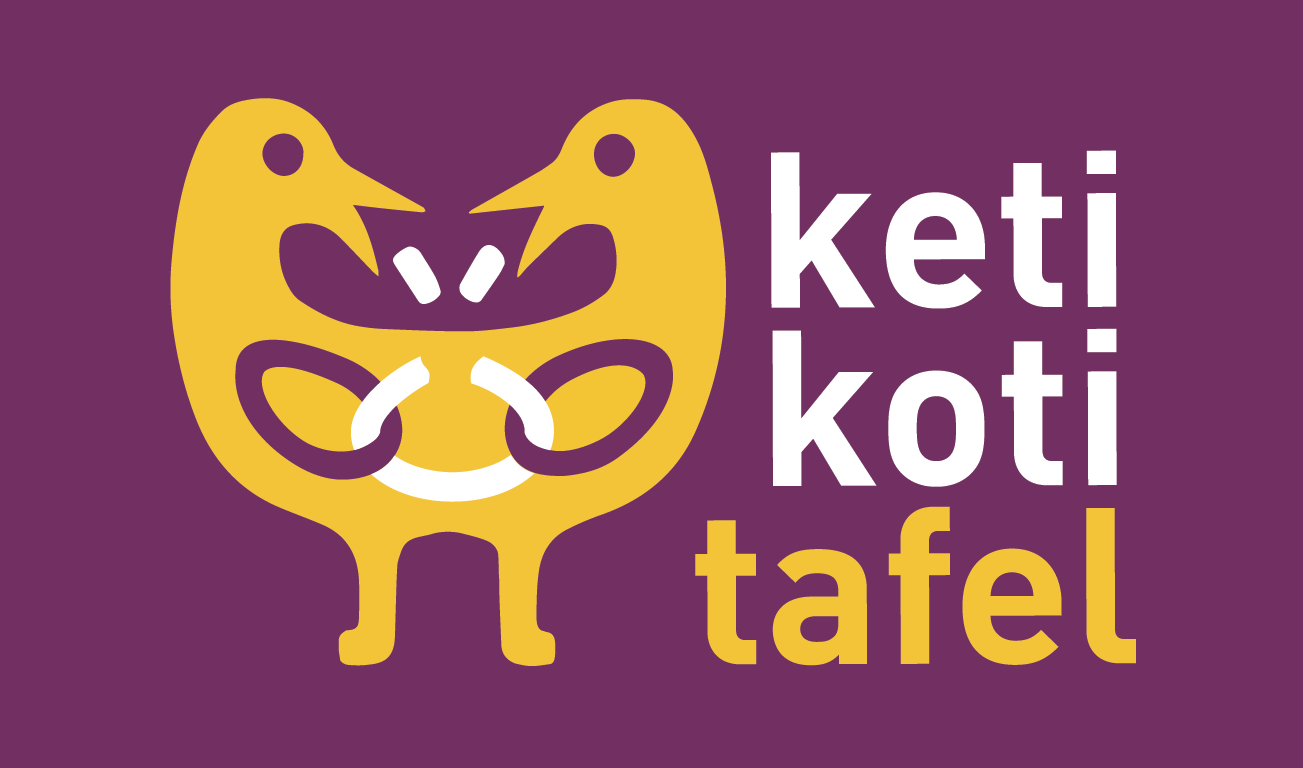Keti Koti Table
‘Keti Koti’ means ‘chains broken’ and marks both the celebration of the abolition of slavery in Surinam and the Caribbean part of the Kingdom in 1863/1873 as well as the commemoration of the enslaved and reflecting on the palpable impact it has left on their descendants. The Keti Koti Dialogue Table is a gathering during which is reflected on the contemporary consequences of the Dutch slavery past over a ritual meal.
What is the Keti Koti Dialogue Table?
The dialogue table brings people with diverse backgrounds together and in conversation: acquaintances and strangers, people of different generations and cultures from different communities. Black people, white people and People of Colour (with non-white migration background) engage in conversation and share their personal experiences, memories and feelings in relation to racism and discrimination.
Although the history of slavery and its aftermath are its occasion, its aim is explicitly not to have a conversation about historical and political subjects, quite the contrary. As such topics often give rise to heated and polarising debates, this facilitated dialogue aims to share different personal experiences and insights with each other.
The conversations are structured according to a specially developed method that includes speaking, listening, and reflection in several rounds.
Why a Keti Koti Dialogue Table at UM?
As an educational higher education institution, Maastricht University hopes to foster through the Keti Koti Dialogue Table meaningful insights regarding the remaining effects from the history of slavery in contemporary society. In doing so, the university aims to foster dialogue with each other on prejudice, discrimination and racism and forge alliances for a more pleasant and inclusive university environment and society.
Programme
A Keti Koti Table has a set structure including rituals and follows a special developed method that requires speaking, listening, and reflecting in multiple rounds. It is therefore important for attendees to remain present from the beginning to the end.
Programme timeline:
- 17:30: Check-in, forming couples, seating
- 18:00: Start Keti Koti Dialogue Table
21:00: Closing
Between conversations, the Fri Yeye choir sings songs of mourning and liberation that were sung on the plantations during the time of slavery. At the beginning and at the end of the dialogue table, a few Afro-Surinamese ritual ceremonies are performed.
You are invited!
This event is for members of the UM community and for external relations. About one hundred people participate in a Keti Koti dialogue table consisting of an equal number of white and non-white people.
It is with great pleasure that we invite you to the Keti Koti Table at Maastricht University on Thursday 23 May 2024 from 17:30 - 21:00. This special event will take place in the Mensa of the School of Business and Economics, located at Tongersestraat 53, Maastricht.
Although the meeting is designed with elements from the slavery history, its aim is to have attendees exchange personal experiences and insights with each other around the chosen theme. You do not need to have a direct link to the slavery past in order to participate.
Registration
You can sign up until Tuesday 21 May 2024 via the application form. Please note that signing up is required and that partial attendance is not possible.
As we will engage in conversation in diverse couples, we encourage you to share this event with someone of a different colour or background than yourself so they can also sign up.
The Keti Koti Table is organised by the Diversity & Inclusivity Office in collaboration with the Keti Koti Table Foundation and Studium Generale Maastricht.
